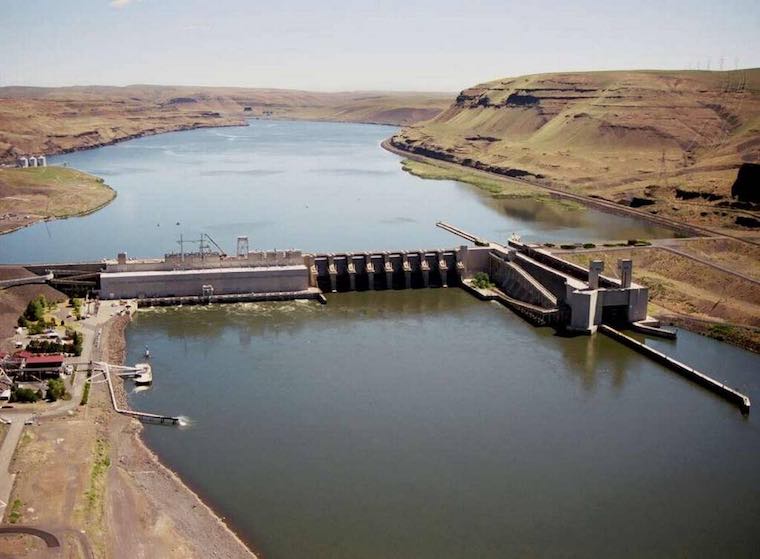forum
library
tutorial
contact

Lawmakers Split on
Columbia River Salmon Bill
by Ariel Wittenberg
E&E News, June 9, 2017
|
the film forum library tutorial contact |

|
Lawmakers Split on
by Ariel Wittenberg
|
 House lawmakers and tribal leaders debated whether endangered salmon on the Columbia River could be restored by allowing more sea lions to be killed.
House lawmakers and tribal leaders debated whether endangered salmon on the Columbia River could be restored by allowing more sea lions to be killed.
Speaking before the House Natural Resources Subcommittee on Water, Power and Oceans, Rep. Jaime Herrera Beutler (R-Wash.) defended her bill, H.R. 2083, to allow some Northwest American Indian tribes to kill a limited number of sea lions that eat the salmon.
Currently, only the states of Oregon, Washington and Idaho can kill Columbia River sea lions. The bill would add the Warm Springs, Umatilla, Yakama and Nez Perce tribes.
"While the lethal take of sea lions is a last resort, it is necessary to protect hundreds of millions of dollars of investment that Pacific Northwest residents have made to protect, restore and enhance salmon and other endangered species on the river," Herrera Beutler said.
Subcommittee ranking member Jared Huffman (D-Calif.) argued that while sea lions prey on the salmon, the fish are most at risk from four dams along the Snake River.
The Lower Monumental, Ice Harbor, Little Goose and Lower Granite dams are the "elephants in the room" when it comes to depleted salmon populations, Huffman said.
He cited figures that the four dams have caused salmon returns to the Snake River to fall by 90 percent. Huffman said killing sea lions will not help the fish as much as removing the dams would.
The legislation, he said, is "without any evidence that such an extreme approach would do anything to help salmon populations."
Herrera Beutler argued that the power industry in the Pacific Northwest has helped fund salmon restoration efforts, noting that many local utilities spend large portions of customers' bills on fish and wildlife commitments.
"The sea lions are making no such improvements or enhancements or offers to offset their damage," she joked.
Tribal leaders were similarly split.
Leland Bill, chairman of the Columbia River Inter-Tribal Fish Commission, said Congress must act to "reconcile a conflict between the Marine Mammal Protection Act and the Endangered Species Act."
He showed the committee photos of injured salmon that he said had survived sea lion attacks.
"Hundreds of fish have come over the Bonneville Dam in this condition," Bill said. "There is an alarming abundance of sea lions. They are overabundant and completely recovered in our area."
Gary Dorr, a member of the Nez Perce Tribe and the group Nimiipuu Protecting the Environment, argued that sea lions were a "distraction."
"We have not addressed the most significant underlying cause of the tragic loss of salmon here -- the federal dams and reservoirs on the lower rivers," he said.
Dorr argued killing more sea lions would not help alleviate salmon deaths at choke points caused by the dams because "they are a very mobile population."
"The more you kill, the more come in," he said.
Yesterday, the subcommittee also discussed a draft bill from Chairman Doug Lamborn (R-Colo.) to authorize the Interior Department to transfer ownership of some reclamation projects to nonfederal organizations, like municipal or tribal governments.
Bureau of Reclamation Chief of Staff James Hess told the panel he appreciated the effort to streamline the title transfer process and looked forward to working with lawmakers to tweak it.
"We strongly support the goals of the discussion draft," Hess said.
learn more on topics covered in the film
see the video
read the script
learn the songs
discussion forum
